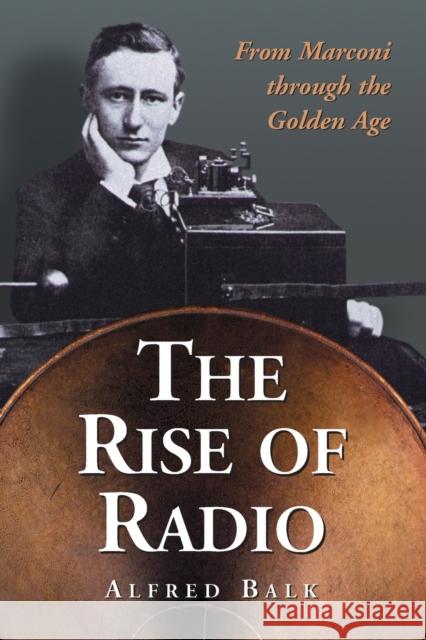The Rise of Radio, from Marconi through the Golden Age » książka
The Rise of Radio, from Marconi through the Golden Age
ISBN-13: 9780786423682 / Angielski / Miękka / 2005 / 358 str.
As the dominant form of electronic mass communication in the United States from the 1930s into the 1950s, radio helped to forge a modern continental nation. It fused myriad subcultures--heavily rural, ethnic, and immigrant--into a national identity, unifying the nation in the face of the Depression and war. Later, federal deregulation allowed the radio of the "Golden Age," 1926-1952, to devolve into a chain-dominated, satellite-fed plaything of Wall Street. Today, radio has the highest profit ratio of all the media outlets--and Golden Age traditions of programming taste, diversity, balance, and localism are a legacy squandered. This anecdote-rich sweep of radio history, from its birth as Marconi's "wireless telegraph" through its current status under deregulation, analyzes the changing medium's social, political, and cultural impact. It casts new light on many topics, including the roles of women and African Americans, programming sources outside the Hollywood-Broadway nexus, and arguments about Amos 'n' Andy--once the hit that jump-started radio's young networks, now a controversial remnant of a bygone era. The book is augmented with more than sixty photos, extensive source notes, and a bibliography.











